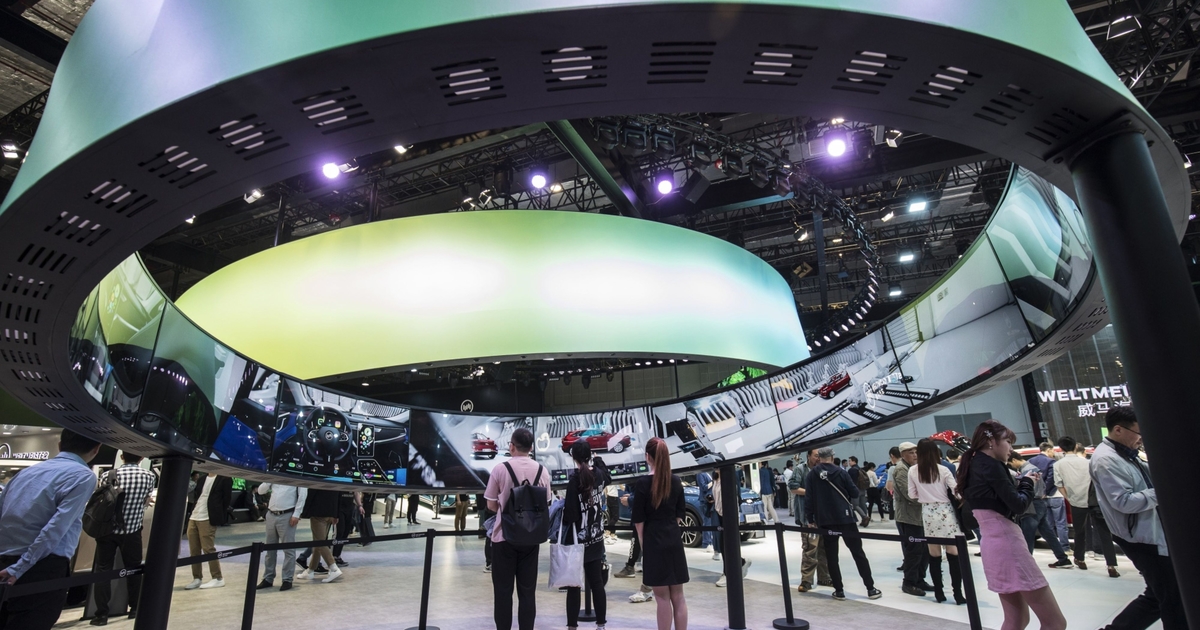
Expectations were high for WM Motor Holdings, a Shanghai electric-vehicle maker backed by tech giant Baidu Inc. and started by a former Volvo executive. Now, it risks becoming yet another casualty of the slow-motion shakeout in China’s crowded EV market.
The company needs to cut costs to survive, founder and CEO Shen Hui wrote in a staff memo earlier this month seen by Bloomberg News. Salaries have been slashed, with employee pay reduced by 30 percent in October and some managers taking 50 percent cuts, another memo dated Nov. 21 showed.
At least 20 percent of WM Motor’s workforce has been laid off since November, and voluntary departures have resulted in the total count dropping by about 40 percent to fewer than 2,000 staff, people familiar with the carmaker’s situation told Bloomberg. Laid-off workers are still awaiting compensation, and payments to some suppliers and contractors have been delayed or only partially made, some of the people said.
The situation is a sharp turnaround from just a few years ago, when WM Motor was regarded as one of the most promising Chinese EV startups, setting delivery records and considering a listing on Shanghai’s Star board, China’s answer to the Nasdaq. That never materialized, and it is now looking to list through a reverse merger in Hong Kong, where fellow EV maker Zhejiang Leapmotor Technology Co. had a disastrous debut last year.
WM Motor and CEO Shen didn’t respond to requests for comment.
Competition is intensifying in China’s auto market, where there were over 500 registered EV makers in 2019, many of which were smaller players gunning for government subsidies. More than half have collapsed or run out of funds, as Tesla Inc. and local manufacturers like BYD Co. became increasingly dominant.
As the market matures and becomes more cut-throat, more high-profile scalps are being claimed. Initially backed by Tencent Holdings and Foxconn Technology Group and set up by former executives of European automakers, Byton suspended carmaking operations earlier in the pandemic. Evergrande New Energy Vehicle Group is another whose ambitions stalled.
Only about 108,000 of WM Motor’s EVs have been sold and registered since 2018, according to insurance data from the China Automotive Technology and Research Center. In contrast, market leader BYD said it delivered 911,140 pure-EVs last year alone.
WM Motor appeared to secure a fresh source of funding last month, when Apollo Future Mobility Group — a Hong Kong-based car designer and manufacturer — announced that one of its units would buy the company for $2.02 billion in an all-stock deal, paving the way for a backdoor listing. If successful, it could enable WM Motor to tap the capital market for funding.
The deal was subject to “a wide range of factors,” Apollo Future Mobility said at the time, noting that it was essential for financing to be raised to boost the EV maker’s cash reserves.
Apollo Future Mobility representatives declined to comment.
As of October 2021, WM Motor had already raised capital 12 times, including from Hong Kong’s PCCW Ltd. and Shun Tak Holdings, despite never having posted a profit, state-run Caixin reported at the time. SAIC Motor Corp.’s parent arranged a 500 million yuan ($73 million) investment in 2020, and Baidu has a stake of about 5 percent in the company.
Some of WM Motor’s recently laid-off workers are seeking legal assistance to receive compensation, which should have amounted to one month’s salary for every year they worked at the company, plus an additional month’s pay, the people familiar with the situation said. A formal application for arbitration could be filed in Shanghai if no progress is made by March 25, according to attorney Shen Zhou.